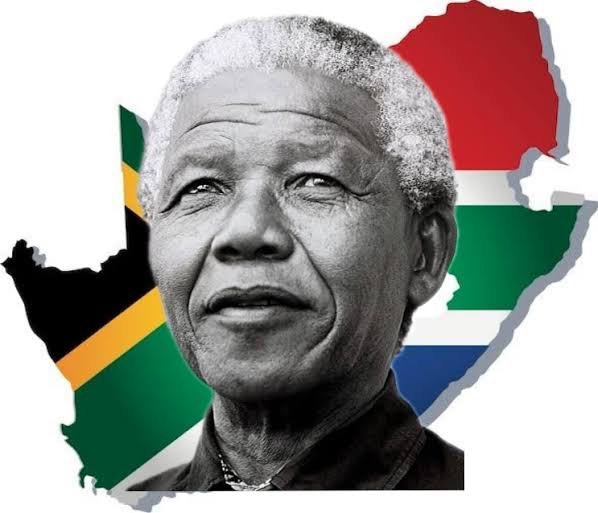
South Africa’s Progressive Laws on Equality, Unity, and Freedom
South Africa is recognized for its progressive legal frameworks regarding equality, unity, and freedom, particularly through its post-apartheid Constitution of 1996, which enshrines non-discrimination and universal rights for all citizens. The country’s oppressive history, rooted in Dutch colonialism and intensified by the apartheid regime, created a legacy of systemic discrimination against Black and indigenous populations. Nelson Mandela emerged as a key figure in the struggle against apartheid, initially advocating for nonviolent protest before resorting to armed resistance through the ANC’s armed wing, Umkhonto we Sizwe, after nonviolent efforts failed. His leadership culminated in the peaceful end of apartheid, leading to his election as the first Black president in 1994, symbolizing the triumph of unity over division. Under Mandela, South Africa established a new constitutional order that guarantees legal equality and protects against discrimination based on various factors. Notably, South Africa became the first country in Africa to legalize same-sex marriage, highlighting its commitment to inclusivity and progressive values. The nation’s journey reflects a commitment to embracing diversity as essential for genuine unity and social justice.

The Secretary-General’s 2020 Nelson Mandela Lecture: A Call for a New Social Contract
In 2020, United Nations Secretary-General António Guterres delivered the Nelson Mandela Lecture, emphasizing the urgent need for a "New Social Contract" amidst the COVID-19 pandemic. He highlighted the rising inequality, stating that the crisis exposes deep-rooted injustices and vulnerabilities, arguing that “inequality defines our time” and threatens global peace and development. Guterres linked the New Social Contract to Nelson Mandela’s legacy, stressing that the fight against poverty and inequality remains vital. He associated this struggle with the 17 Sustainable Development Goals (SDGs), particularly SDG 10, which aims to reduce inequalities. The pandemic exacerbated existing inequalities, disproportionately affecting vulnerable populations such as the poor, women, and minorities. Guterres pointed out that COVID-19 has been an “x-ray,” revealing societal fractures and stark disparities. He specifically noted the alarming rise in global food insecurity, with millions more facing hunger due to economic disruptions linked to the virus. Guterres underscored that achieving equality is not only an ethical imperative but also crucial for sustainable development and resilience. The call for a renewed societal framework emphasizes inclusion, equal opportunity, and respect for human rights, ensuring that no one is left behind in recovery efforts.

🍽️ Major Food Organizations Inspired by Nelson Mandela
Organizations inspired by Nelson Mandela play a significant role in addressing global hunger and food insecurity. Rise Against Hunger Africa organizes events, particularly on Mandela Day, where volunteers pack nutritious meals, emphasizing that proper nutrition is crucial for children's development. The Nelson Mandela Foundation runs initiatives like the "Each 1 Feed 1" program, which collaborates with other organizations to provide food relief and promote sustainable community projects, including planting one million trees. Mandela Day, celebrated on July 18th, mobilizes global action against poverty, with many organizations launching food-related campaigns to honor Mandela's legacy. Initiatives like Outside The Bowl Africa’s Mandela Project aim to support children in need. Collaborative efforts, such as the partnership between Ford and the Nelson Mandela Foundation in 2020, have facilitated food parcel deliveries across South Africa, benefiting many vulnerable communities. In 2023, the Foundation initiated the "Climate, Food and Solidarity" campaign, tackling the links between climate change and food security. Mandela's commitment to social justice has inspired these organizations, reinforcing the belief that making a difference in the lives of others is what gives life significance, as he famously articulated.

Nelson Mandela’s Strategic Use of Violence to Achieve His Goals
Nelson Mandela’s journey to end apartheid in South Africa involved a crucial shift from nonviolent protest to the strategic use of violence. Initially inspired by Gandhi, Mandela engaged in peaceful resistance, but the apartheid government’s brutal repression, exemplified by events like the Sharpeville Massacre, pushed him to adopt armed struggle. In 1961, he co-founded Umkhonto we Sizwe, the ANC's military wing, focusing on sabotage of government infrastructure while avoiding civilian harm. This change is often omitted from mainstream narratives that present Mandela primarily as a figure of reconciliation, obscuring the realities and complexities of his choices. Unlike Gandhi, who viewed nonviolence as an absolute principle, Mandela saw it as a tactic to be employed when peaceful protests proved ineffective. His armed resistance was deemed necessary for the survival of the anti-apartheid movement and revitalized international attention, leading to negotiations with the government. Throughout this struggle, Mandela endured significant personal suffering, spending 27 years in prison under harsh conditions. His experiences highlight the sacrifices made for freedom and the difficult choices faced in the fight against systemic oppression.